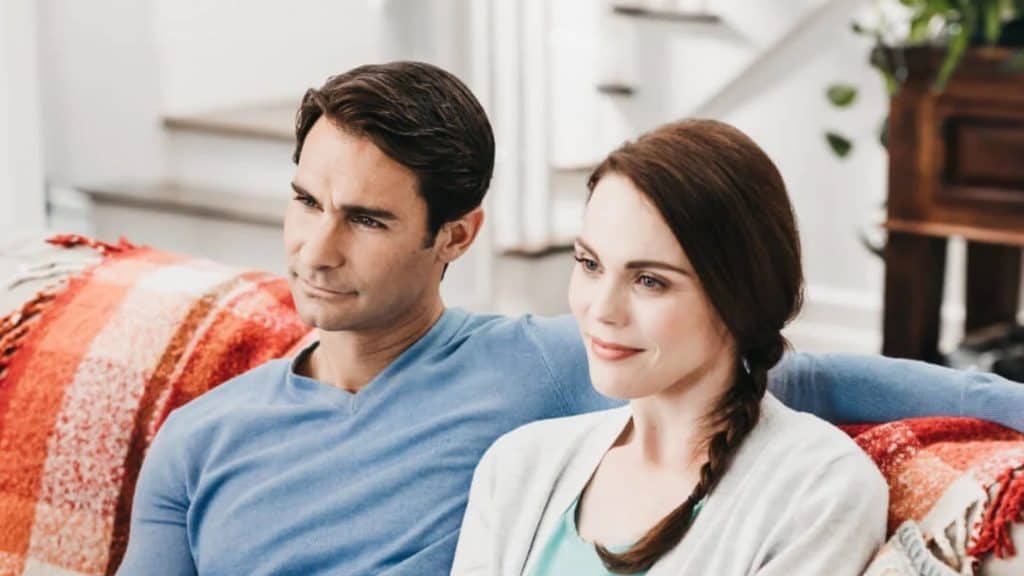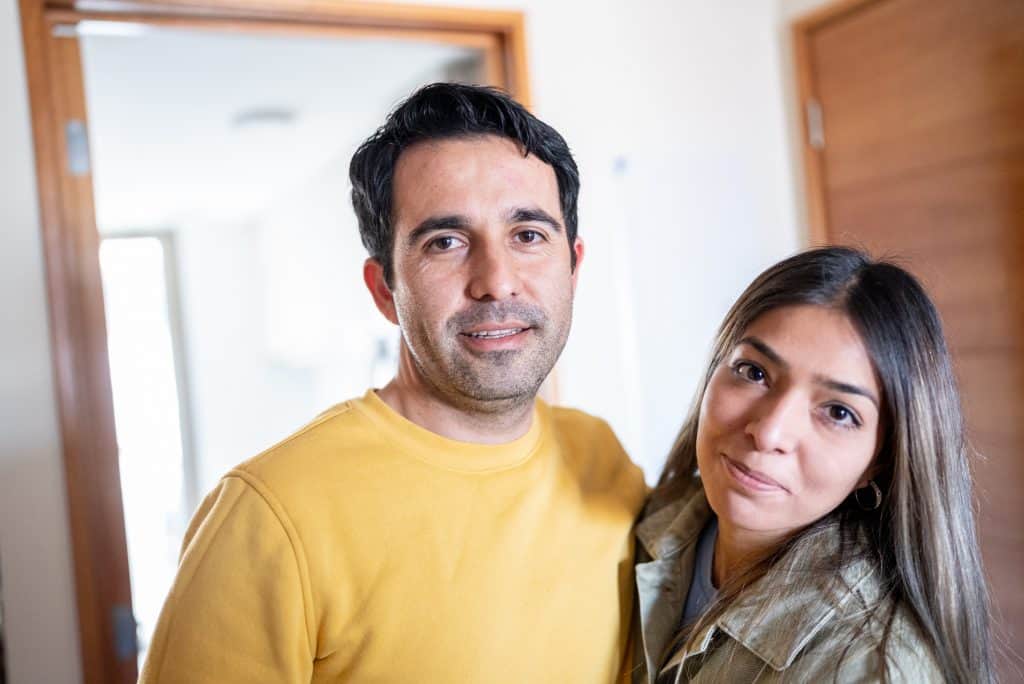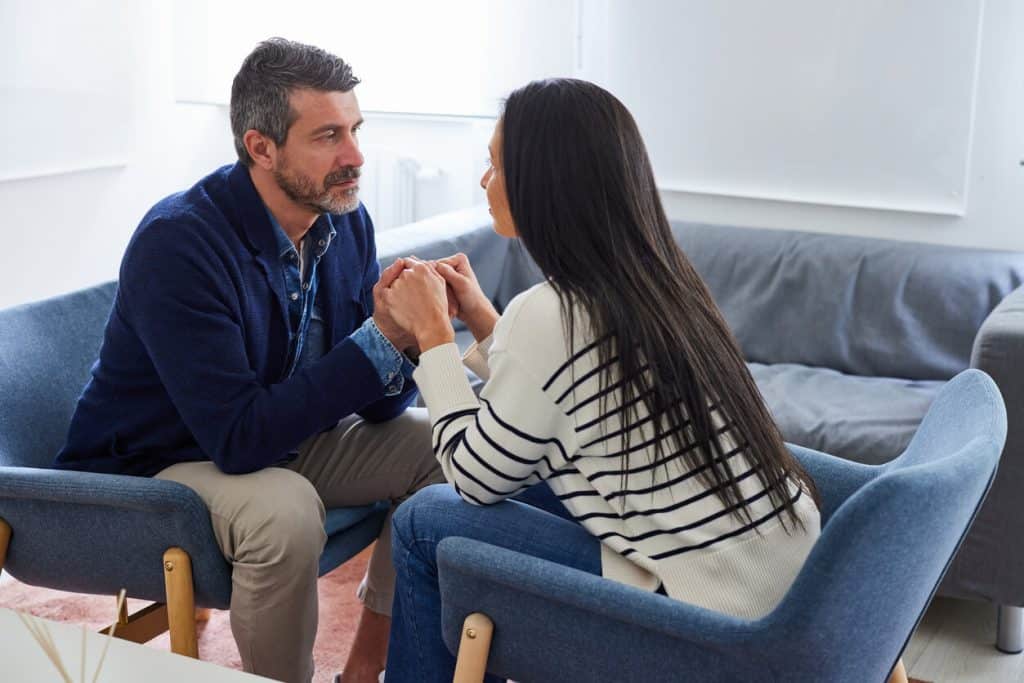Porn. No matter how much or little of it we’ve seen, we hear from couples all the time who want to guard their marriages from potential temptations online.
Six couples shared with us why they use Internet Accountability software in their homes and love the peace of mind it brings.
1. Preventing Temptation Before It Starts
Brandon started using Covenant Eyes before he was married. He says when he knows a brother or sister in Christ sees where he’s going online, it reminds him that God, ultimately, is looking on as well. His wife Amy says this is exactly the reason why Covenant Eyes is a good weapon in the pursuit of purity.
Best-selling author Eric Ludy says that by sending his Covenant Eyes Report to his wife Leslie, it has a huge impact on what he does online. Knowing he is held accountable causes him to pause before giving into temptation. “What would my wife think?” Ludy asks himself. “Would she feel loved and cherished with what I’m looking at?” This greatly alters his behavior.
2. The Untapped Power of Honesty
Serena Abdelaziz says her husband Josh was very good at hiding his struggle from others. But after Josh began meeting regularly with men from his church, things began to change. “Every one of these men has Covenant Eyes on their computers,” she says, “and they are the first ones to call Josh if they see something questionable on his Accountability Report.” This honesty with others helps Josh be honest with himself.
Josh and Jeannie Yates have see this same power of honesty play out not only in their marriage but in their ministry to youth. The power of accountability, says Josh, brings the sin into light: someone will be able to walk with you in your struggles. For them, Internet accountability created an openness in their marriage and an openness among the youth they serve.
Jon says when this kind of transparency is met with compassion, it can change the course of someone’s life.
“Without accountability, I—left to my own devices—would not have found freedom. It’s the love that I get from my accountability partners, and the non-judgmental attitudes that I get from them, that allows me to be open, to be transparent, and to ultimately be free from the addiction that I suffered early on in my life.”
3. Rebuilding Broken Trust
Veronica Benton says, “Every time I get a ‘clean’ report, it helps to build trust.” After watching her husband sneak out of bed to look at porn, she needed to know she could trust him online. So one of the biggest factors in rebuilding trust in their marriage was an accountability system.
For Nicole, knowing a few trusted friends regularly receive Jon’s Internet report is a huge weight off her shoulders. It frees her up to trust Jon again. “Having multiple sets of eyes, other than mine, viewing Jon’s activity on the Internet was helpful in two ways: it gave him the motivation to consistently make good choices on the computer, and took the pressure off my mind and heart of wondering whether or not he was being truthful in that particular area.”
Serena says she no longer worries about what Josh is looking at online because of Internet accountability. “Having Covenant Eyes has given me security, knowing that the computer is not being used to feed Josh’s addictions. Covenant Eyes does not cure the problem, but it definitely helps build trust. And having other people hold Josh accountable is, by far, the best part of it. If he acts inappropriately, I know he will have to answer to his brothers.”







Don’t discount the fact that families use Covenant Eyes for wives’ use of porn as well. By only mentioning the men, you are reinforcing the unspoken message that only men struggle with this, which only adds to the shame that Christian women feel when they DO struggle.
I only mentioned the men because those were the ones who were willing to share their testimonies on film (as far as Covenant Eyes goes). We have a whole category on our blog dedicated to women and porn addiction. One of our regular authors is a women who runs a ministry for other ladies struggling with lust. We have featured video testimonies from women (here and here). We’ve also hosted an hour-long webinar on this topic, and another webinar that spoke to both women and men.
My point is we are certainly not trying to be silent about this issue. When we write to the issue of husbands who use pornography, it is not to alienate the wives who struggle with it, but to deal with husbands specifically. It is similar when we write articles for women who struggle with porn: we don’t do it to alienate the men, but to single out the resources that will be helpful specifically for women.
I hope the links above are helpful to you, Tina.